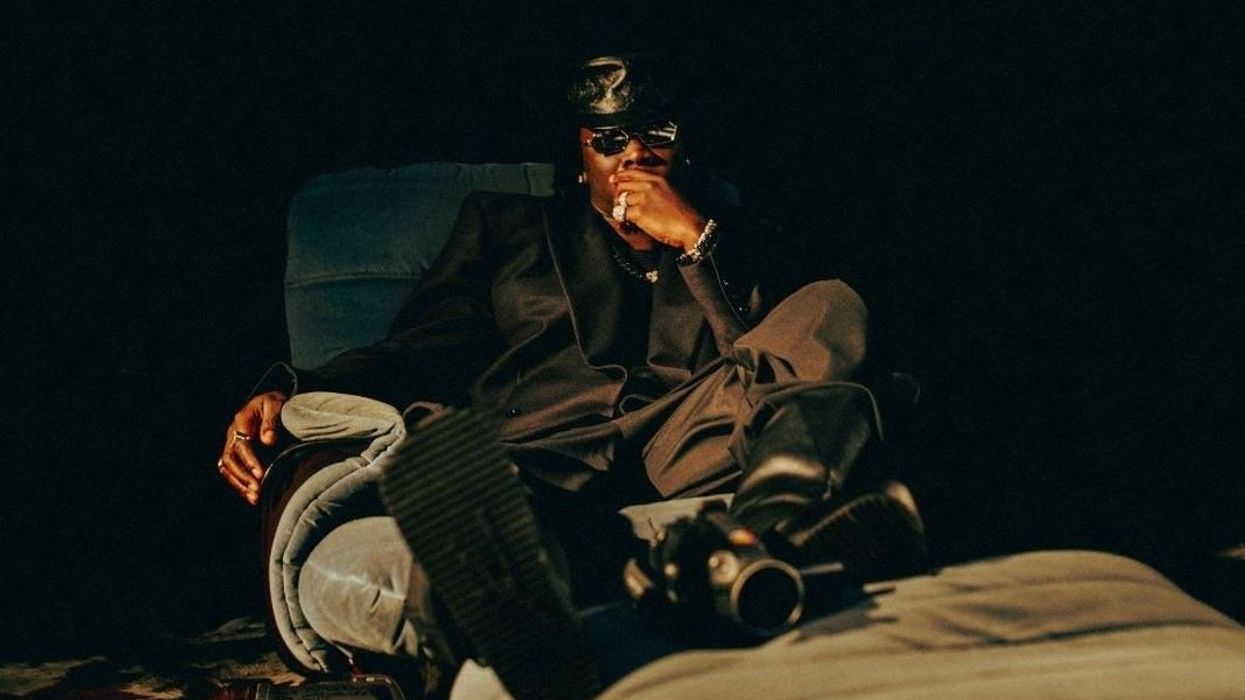
Significant events in music are often shaped by the broader context in which they occur. The evolution of contemporary Nigerian music spans three decades and is intertwined with various key moments. For instance, the rivalry within the group the Remedies led to the creation of the memorable track, “Omode Meta,” while the fallout between Don Jazzy and D’banj is linked to the crossover hit, “Oliver Twist.”
In 2014, Wizkid found himself in a challenging position. Just two years after releasing his groundbreaking debut album, Superstar, he sought greater control over his career while still bound by a contract with the label that had helped launch his success. His growing frustrations with Empire Mates Entertainment (EME), where popular figures like Banky W were involved, became public knowledge.
Wizkid frequently took to Twitter, hinting at grievances. Rumors circulated that he was aiming to renegotiate his two-album contract or perhaps buy his way out. EME, understandably, was reluctant to relinquish such a valuable artist. Consequently, Wizkid had to deliver his second album under EME.
Ayo, his much-anticipated follow-up album, celebrates its tenth anniversary. It bursts with high-energy tracks, reflecting a desire to have a grand finish during his time with EME, featuring party anthems like “On Top Your Matter” and “Show You the Money.”
The standout track, however, was “Ojuelegba,” a reflective piece regarded as one of Wizkid’s most impactful releases. Unlike the louder tracks in the album, “Ojuelegba” offers a soothing reprieve. Its relevance within modern Nigerian pop music dismisses any notion that Afrobeats lacks uplifting content.
Nigerian pop in the early 2010s wasn’t particularly profound; however, artists recognized the importance of conveying a wide range of emotions. Clarity in their intentions was paramount, whether the lyrics made sense or merely focused on creating an ambiance. Wizkid exemplified this, even in provocative tracks like “In My Bed.”
A particularly poignant moment in “Ojuelegba” occurs when Wizkid sings, “I can’t explain,” with an emphasis that conveys deep gratitude. This sentiment resonates with many who share his experiences, recognizing that not everyone has a straightforward path to their dreams. It’s a shared reality for many Nigerians and those grappling with finding direction.
Wizkid’s straightforward lyrics, backed by breezy production—featuring a melodic sample from a classic rap track by producer duo Legendury Beatz—create an inspiring and uplifting atmosphere. “Ojuelegba” reflects Wizkid’s journey, celebrating his rise from an aspiring artist in Mo’Dogg Studios to a global sensation.
The song also acknowledges his mother and encourages listeners to trust in a higher power. This spiritual dimension positions “Ojuelegba” as a street-pop anthem since many from Lagos’s neighborhoods believe divine assistance is crucial for success. Wizkid’s call to “call on baba God” for support predates Seyi Vibez’s later hit, which echoed similar sentiments regarding faith.
Although “Ojuelegba” promotes aspiration, its true strength lies in its universal relatability. It’s a narrative of overcoming hardships that resonates with listeners from all walks of life, creating a timeless connection.
The remix featuring Drake and Skepta released roughly a year later marked a pivotal moment for Afrobeats in the global music scene. At a time when collaborations with international artists were rare, the partnership with some of the biggest names in rap underscored the track’s significance. The blend of personal storytelling rooted in Lagos contrasted with its widespread appeal.
Through its original release and remix, “Ojuelegba” highlighted Afrobeats’ global potential, establishing its resonance beyond cultural boundaries. Beyond the surface-level discussions surrounding the genre, Wizkid’s iconic track exudes sincerity and reflects a broader possibility of greatness arising from challenging situations.
Despite the upbeat vibe of “Ojuelegba,” it’s important to acknowledge the context in which it was created. This song serves as a poignant reminder of his past experiences. Often, expressing gratitude is the best way to overcome disillusionment—a lesson that remains vital today and will surely resonate in the future.



Comment